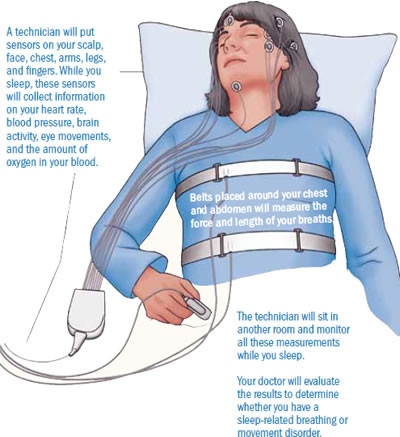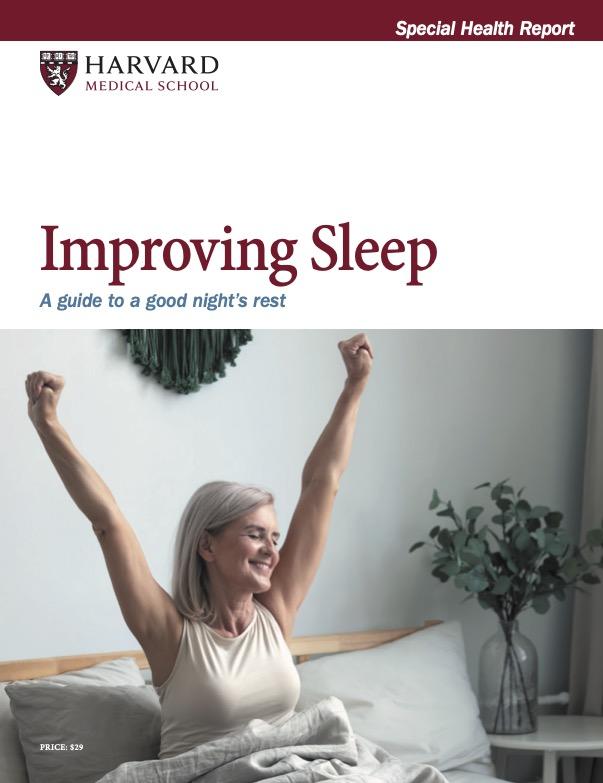8 reasons why you're not sleeping
Stop these common sleep stealers before they put your health at risk.
You might remember a time when you could drift off to sleep in an instant and remain in a state of blissful slumber well past lunchtime the next day. Now your sleep is more likely to be lighter and more fitful, and when you wake up in the morning you might not always feel refreshed.
A lack of good-quality sleep could be a natural consequence of changing sleep-wake patterns as we age. It's also very possible that the issue is physical—and fixable. Many conditions can disrupt your rest, and they can be treated. It's important to address these issues. A lack of sleep does more than make you drowsy. Chronic insomnia has been linked to a variety of health problems, including obesity, high blood pressure, heart disease, diabetes, and depression.
Why can’t I sleep?
Go through this list to see whether you might have one of these sleep-stealing conditions. Also check your medicine cabinet. Some medicines, including corticosteroids (prednisone), cold and flu remedies, and certain antidepressants also can interfere with sleep.
1. Sleep apnea
The conventional image of sleep apnea is of the overweight man who snores, but women of any size can also develop these repeated pauses in breathing while they sleep. A man or woman who has a narrow jaw or a change in muscle tone can get apnea. Either of these anatomical issues can block oxygen from reaching your lungs (and subsequently the rest of your body) while you sleep. Snoring might not be your main symptom if you do have sleep apnea, but you will notice that you're especially sleepy during the day.
- Solution: See a specialist for a sleep study. You may be able to relieve apnea with a few lifestyle adjustments, such as sleeping on your side or losing weight. Your doctor might also suggest an oral appliance or a CPAP machine that blows air into your airways to keep them open at night.
2. Diet
What you eat can affect your sleep. Spicy foods can contribute to painful heartburn. Big meals leave you uncomfortably full, and over time can contribute to obesity—a well-known risk factor for sleep apnea. Too much caffeine could keep you wide awake, even if you finish your coffee in the morning. It can take up to six hours to clear half of the caffeine from your body. If you have enough caffeine, it's still in your body at 4 in the morning. And though a glass of wine or two with dinner will make you feel relaxed or even sleepy, it won't help you sleep. You can fall asleep, but once you're asleep you can't sleep deeply.
- Solution: Eat dinner at least a couple of hours before bedtime and keep the meal light. Avoid spicy, fatty foods, as well as alcohol and caffeine. Also, don't drink too many fluids before bed. Having to constantly get up to go to the bathroom can disrupt your sleep, too.
3. Lack of exercise
Sleep and exercise complement each other. Working out regularly can help you sleep better, and conversely, you're more likely to exercise if you get a good night's rest.
- Solution: Exercise every day if you can, ideally in the morning. Doing a high-energy aerobic routine too close to bedtime can have the opposite of the intended effect, making you too energized to sleep. A gentle yoga stretch before bed probably won't hurt, though. It might even help you relax.
4. Pain
Arthritis aches or any other kinds of pain do not make for restful slumber. Conversely, a lack of sleep can increase your pain. Researchers believe that a lack of sleep may activate inflammatory pathways that exacerbate arthritis pain. Poor sleep can also make you more sensitive to the feeling of pain.
- Solution: In addition to the pain remedies your doctor recommends, try using a heating pad or taking a warm bath before bed to soothe achy joints or muscles. Lying against a body pillow can put you in a more comfortable position while you sleep.
5. Restless legs syndrome
Both sexes can develop restless legs syndrome (RLS), but it affects women more often than men. RLS causes a creepy, crawly feeling and uncontrollable movements in the legs at night. RLS isn't just miserably uncomfortable—researchers at Harvard have linked this condition to an increased risk for heart disease and depression in women.
- Solution: Try simple interventions first. Exercise every day, take a hot bath before bed, massage your legs, and cut back on things that can make you jittery—like caffeine and tobacco. If these measures don't work, your doctor may recommend one of several medicines that reduce RLS symptoms—including ropinirole (Requip), pramipexole (Mirapex), rotigotine (Neupro), or gabapentin enacarbil (Horizant).
6. Depression
Depression is a common compromiser of sleep, and it is more common in women than in men. People who are depressed may sleep more than usual, but their sleep isn't restful. Some of the antidepressants meant to counteract depression, particularly SSRIs, can also interfere with sleep.
- Solution: See your primary care doctor, psychologist, psychiatrist, or therapist for help, which may include medications, talk therapy, or both. If your antidepressant seems to be keeping you awake, ask your doctor to switch you to another drug.
7. Stress
It's impossible to sleep when the weight of the day is pressing on you. Finding a sense of calm before bed isn't easy—especially when you can't unplug from the demands of your day.
- Solution: Establish wind-down time. Do a quiet, relaxing activity before bed that doesn't involve a screen. Talk to a friend or family member, sew, or read a real book—not one on a backlit tablet device. Just allow yourself to have quiet time. And don't sleep with your smartphone on your bedside table.
8. Poor sleep habits
Sometimes insomnia stems from long-ingrained behaviors, like staying up too late or engaging in stimulating activities before bed.
- Solution: Follow a few basic sleep hygiene strategies. Go to bed and wake up at the same times each day. Keep your bedroom cool, dark, and comfortable. Use your bed for sleep and sex only. If you can't fall asleep within 15 minutes, get up and leave the bedroom. Read or do another quiet activity for 15 to 20 minutes until you get sleepy.
What to expect during a sleep study
Illustration: Alayna Paquette |
Disclaimer:
As a service to our readers, Harvard Health Publishing provides access to our library of archived content. Please note the date of last review or update on all articles.
No content on this site, regardless of date, should ever be used as a substitute for direct medical advice from your doctor or other qualified clinician.














